Your cart is currently empty!
Indya Moore
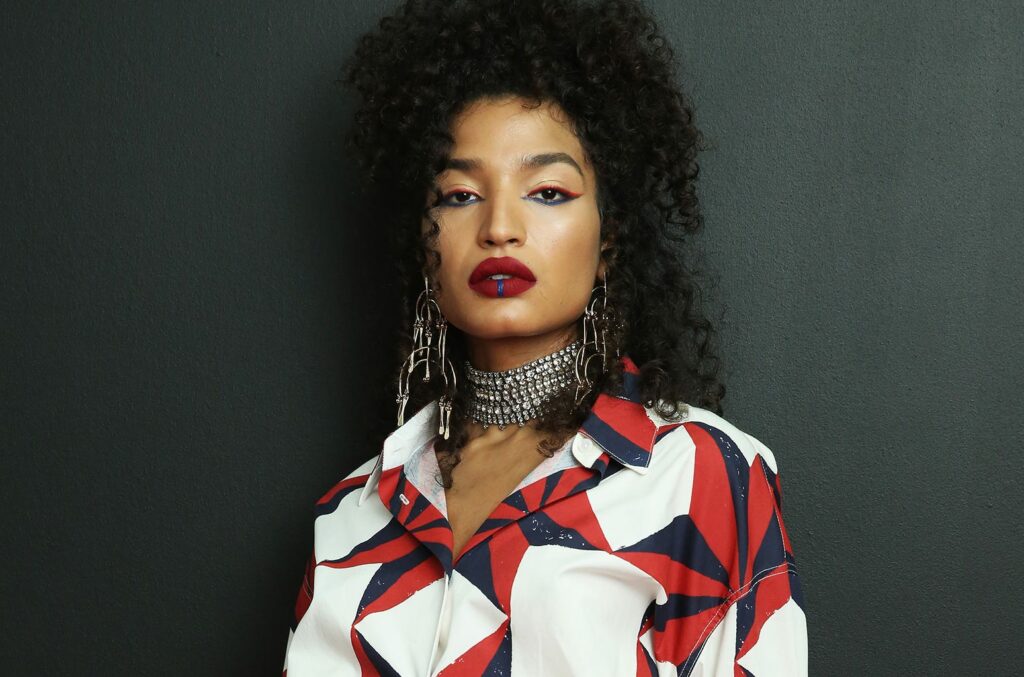

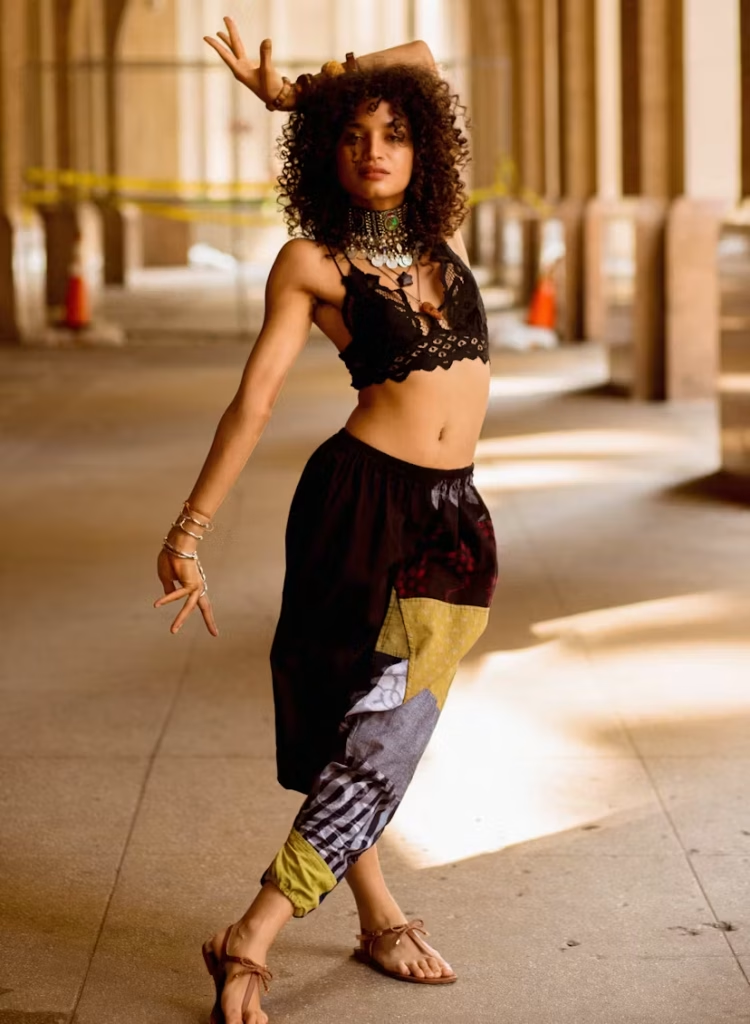
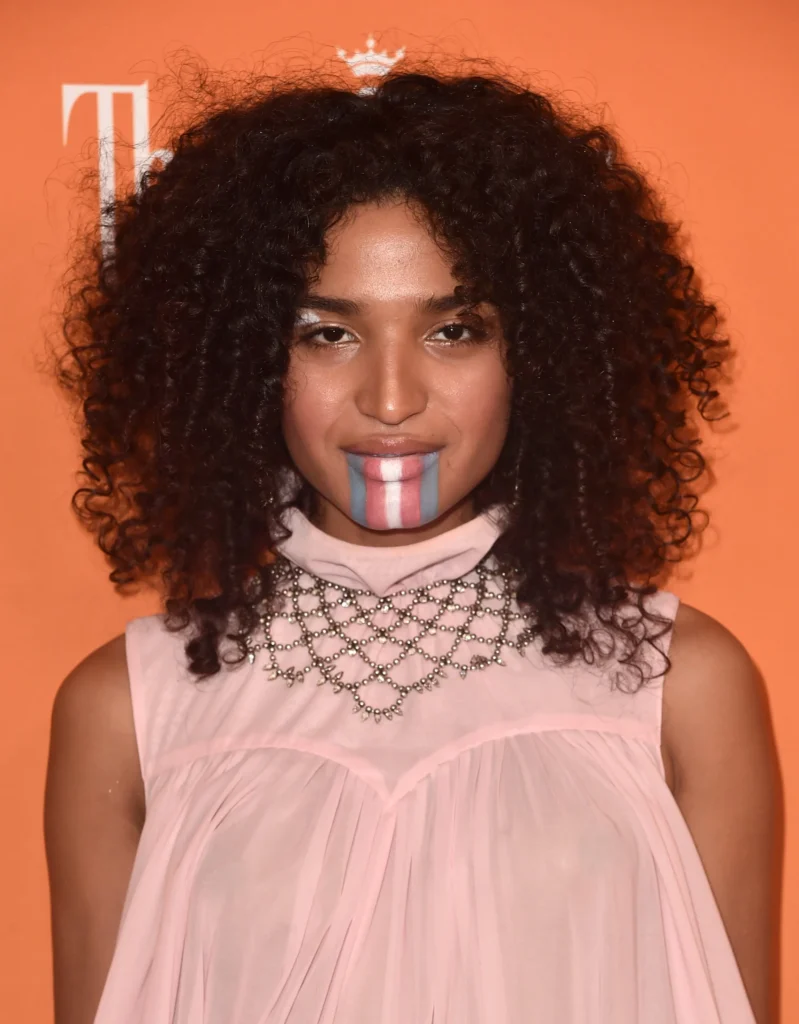
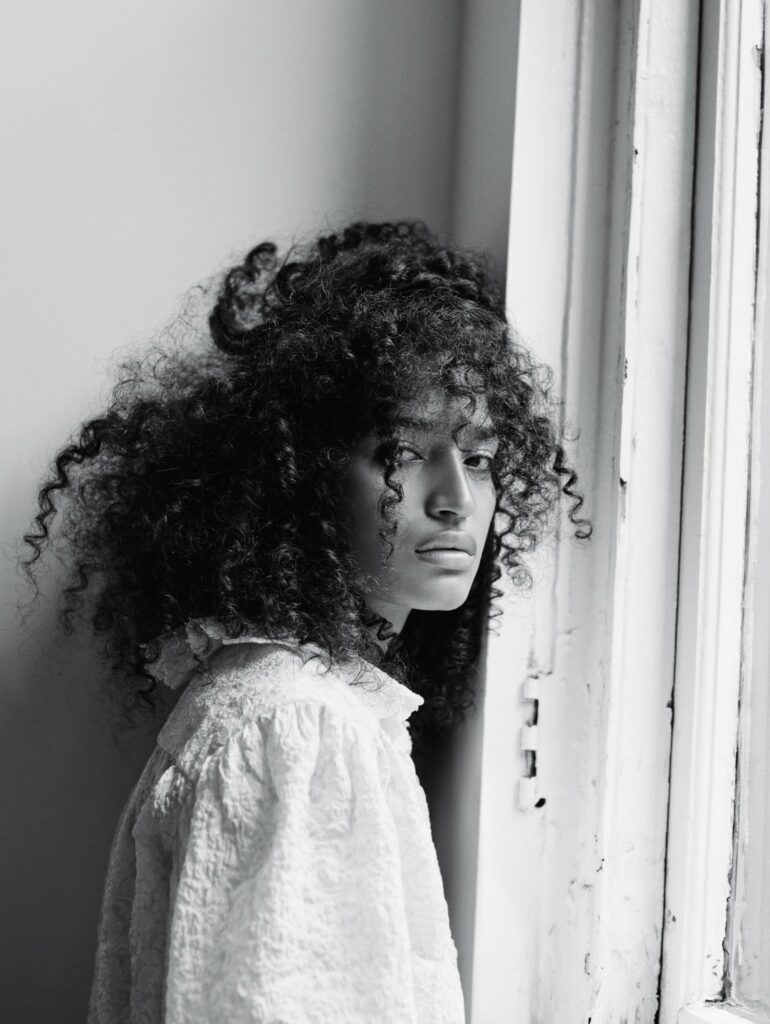
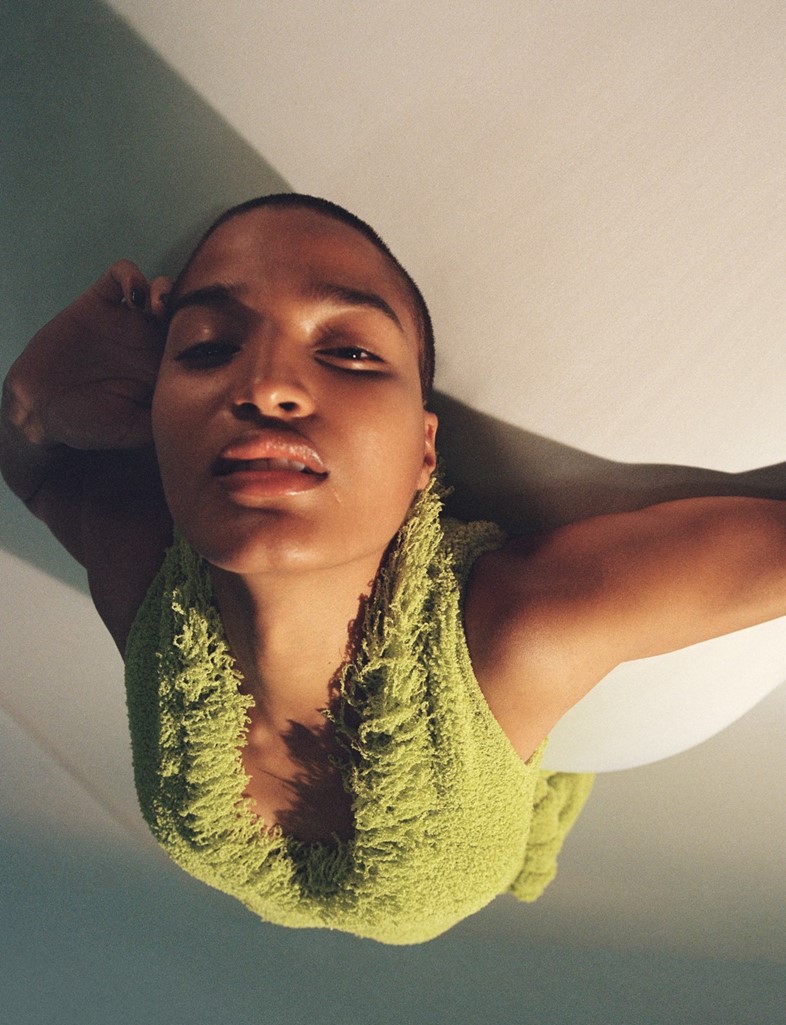
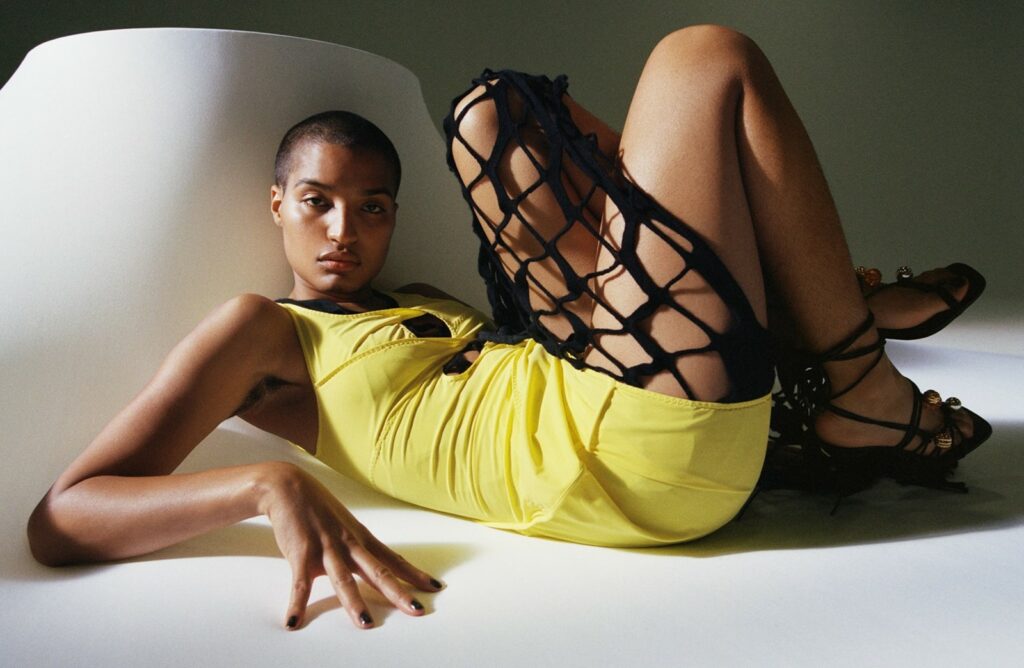
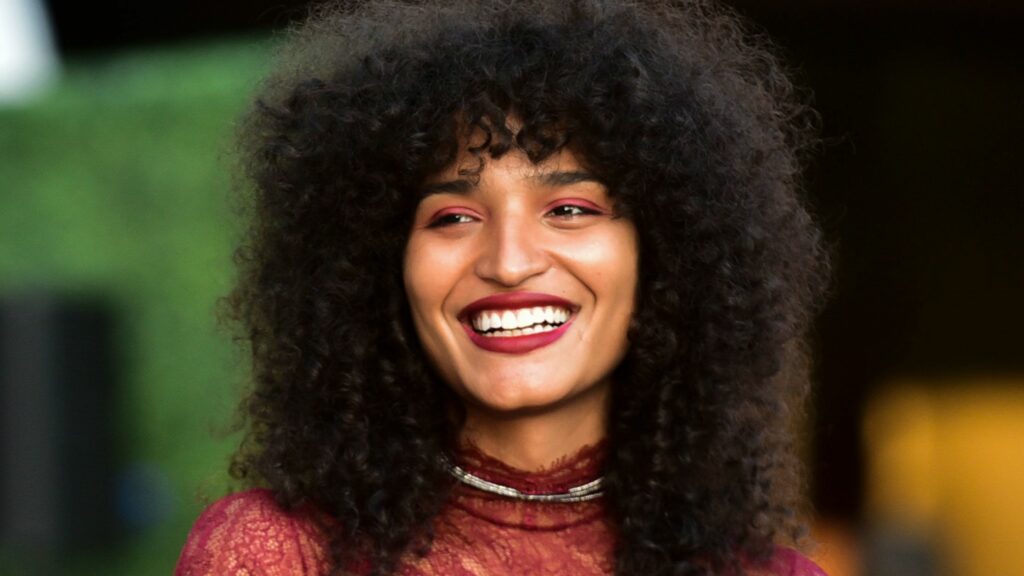

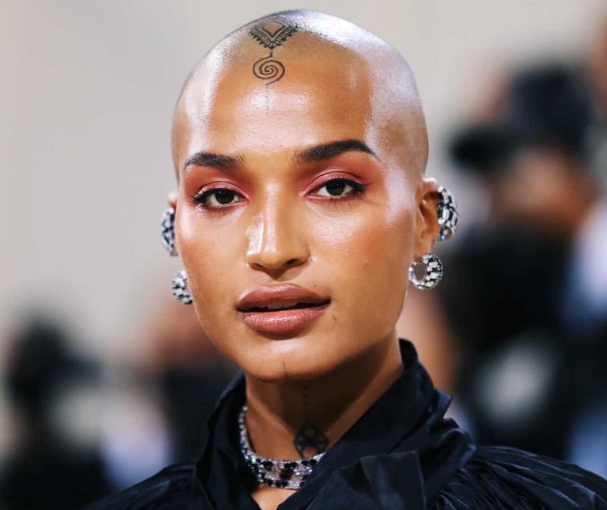
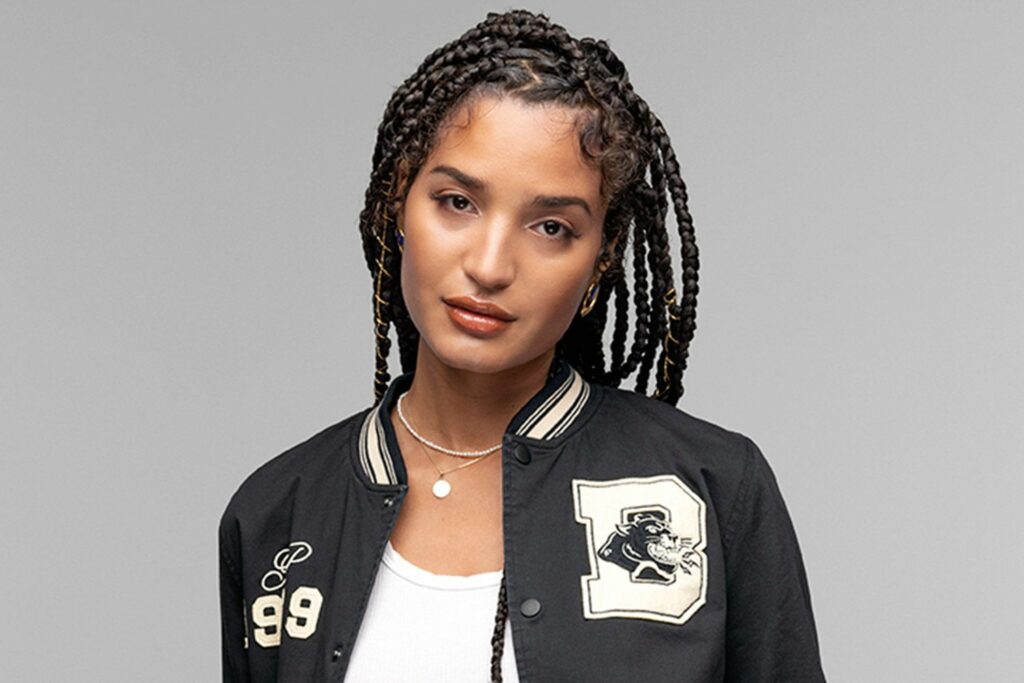
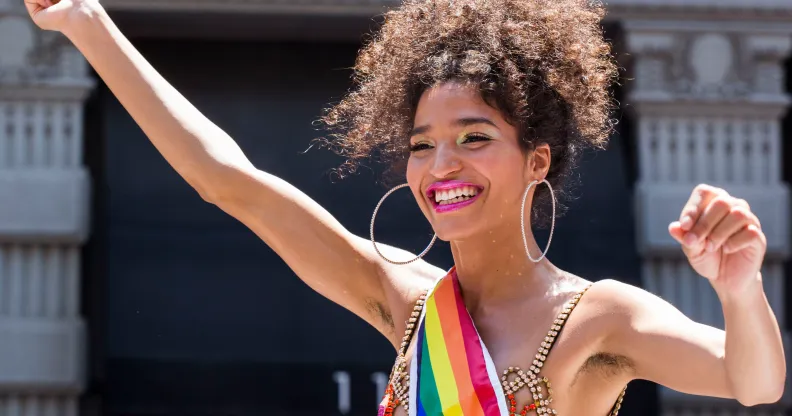
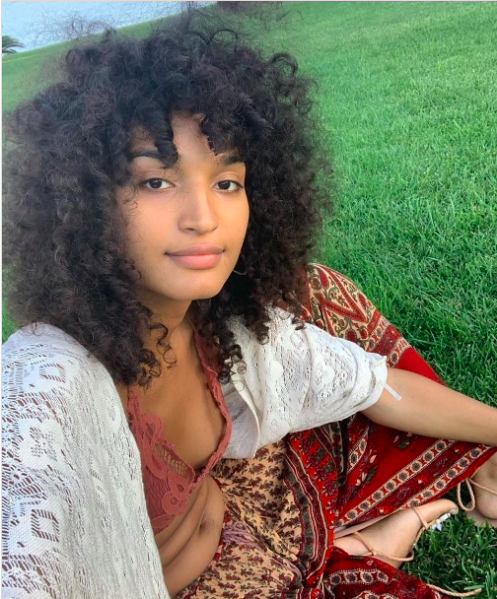
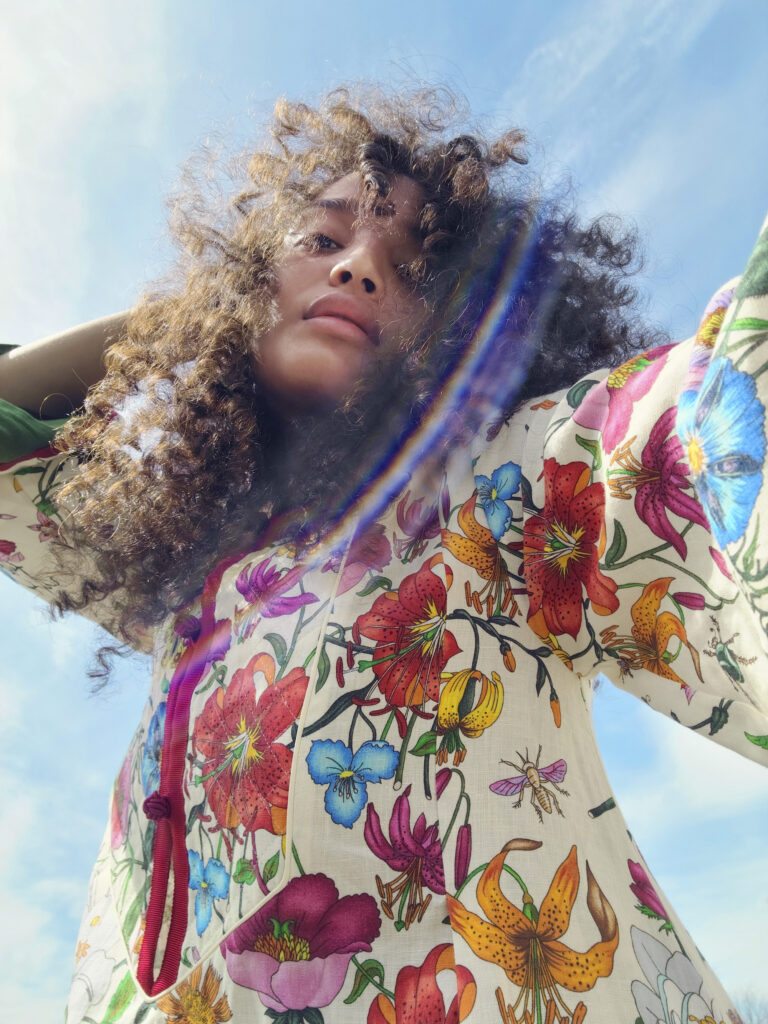
Name: Indya Moore
Birthdate: January 17, 1995
Birthplace: Bronx, New York, USA
Gender Identity: Nonbinary
Pronouns: They/them, she/her (uses both)
Sexual Orientation: Pansexual
Nationality: American
Ethnicity: Afro-Latinx (Haitian, Puerto Rican, and Dominican descent)
Profession: Actor, model, writer, activist
Years Active: 2017–present
Early Life
Indya Adrianna Moore was born on January 17, 1995, in the Bronx, New York City to parents of Haitian, Puerto Rican, and Dominican descent. From an early age, Moore expressed a sense of gender that did not align with the expectations placed on them. Assigned male at birth, they came to identify as transgender by the time they were 14 years old.
Moore’s childhood was shaped by poverty, violence, and rejection. They faced frequent bullying and transphobia both at school and at home. Feeling unsafe and unsupported, Moore left home at the age of 14 and entered the New York foster care system. Over the next several years, they lived in more than a dozen foster homes, often in environments that were unstable or unsafe for a young trans person of color.
At 15, Moore began modeling as a way to support themselves. Although they initially entered the industry out of necessity, it became a source of creative empowerment. Despite facing transphobia and tokenism within the fashion world, modeling introduced Moore to spaces where gender expression could be more fluid and expansive.
Because of the instability in their home life and the harassment they experienced at school, Moore dropped out of high school before completing their education. They have since spoken about this choice as one made for survival. Although they did not follow a traditional academic path, Moore has described their education as coming through lived experience, activism, and their community.
In later interviews, Moore reflected on their early life as painful but foundational. Growing up as a nonbinary trans youth of Afro-Latinx heritage in the Bronx, with little protection or support, helped shape their deep sense of empathy and social justice. Their personal history informs their art and advocacy work, particularly their efforts to uplift trans youth and fight for access to safe housing, healthcare, and self-determination.
Modeling Career
Indya Moore began modeling at the age of 15, initially as a means of financial survival while navigating life in foster care and on the streets of New York. Despite being frequently told they were “too feminine” to succeed in the fashion industry, Moore pursued modeling with determination, using it as a platform to express gender fluidity and challenge traditional beauty norms.
Moore’s early modeling work included local photo shoots and small gigs. Over time, their presence and powerful image caught the attention of major fashion insiders. Their unique look, combined with their confidence and authenticity, helped them break into more prominent campaigns and editorial spreads. They have since modeled for Dior, Louis Vuitton, Gucci, Jason Wu, Tommy Hilfiger, and Helmut Lang, among other top designers.
Moore has appeared in editorial spreads for Vogue, Elle, i-D, GQ, Paper Magazine, and Out Magazine. In 2017, they walked in New York Fashion Week for Chromat, a body-positive, inclusive fashion label that has been a major supporter of queer and trans models. Moore’s runway presence stood out not only for its visual impact but also for its cultural significance, as they represented nonbinary and trans people of color in spaces where they have long been excluded.
In 2019, Indya Moore made history by becoming the first trans person to be featured on the cover of Elle USA, a groundbreaking moment in mainstream fashion media. The cover story emphasized Moore’s identity, advocacy, and artistry, and was widely praised for pushing representation forward in a meaningful way.
Moore has used their modeling career to raise awareness about the exploitation, erasure, and tokenization of trans and nonbinary people within the fashion world. In interviews and public appearances, they have been outspoken about the industry’s need to shift from symbolic inclusion to material support, crediting trans artists properly and paying them fairly.
In addition to modeling, Moore has collaborated on campaigns for H&M’s Pride Collection, Nike’s BeTrue, and Papi Juice, often blending fashion with activism. They also walked in the 2019 Met Gala red carpet, wearing custom Louis Vuitton, and later called out the event for its lack of genuine diversity, using the moment to advocate for trans lives.
Through their modeling, Indya Moore has become a powerful visual and cultural icon. They continue to use their platform to advocate for a fashion industry that is inclusive, ethical, and radically affirming of all bodies and identities.
Acting Career
Indya Moore’s acting career began in earnest in the mid-2010s, following years of modeling and advocating for trans and nonbinary representation. Although they had no formal acting training, Moore’s lived experiences and emotional depth helped them deliver performances that resonated with both audiences and critics. Their breakthrough role came with a film that explored themes close to their own life, paving the way for widespread recognition.
Moore’s acting debut was in Saturday Church (2017), an independent coming-of-age musical drama written and directed by Damon Cardasis. In the film, Moore played Dijon, a trans femme teen who helps guide the main character through New York’s LGBTQ+ ballroom scene. The role was deeply personal and gave Moore their first opportunity to portray a multidimensional trans character on screen. The film premiered at the Tribeca Film Festival and received critical praise for its heartfelt performances and authentic storytelling.
Their breakout moment arrived in 2018 when Moore was cast as Angel Evangelista in the groundbreaking FX television series Pose. Created by Ryan Murphy, Steven Canals, and Brad Falchuk, the show explores New York City’s Black and Latinx ballroom culture during the height of the HIV/AIDS crisis. Moore’s character, Angel, is a trans sex worker with aspirations of becoming a high-fashion model. Moore infused the role with vulnerability, hope, and quiet strength, drawing from their own experiences with survival, marginalization, and dreams of visibility.
Pose made television history for featuring the largest ensemble cast of transgender actors in leading roles. Moore’s performance earned them widespread acclaim, helping to redefine what trans representation could look like in mainstream media. Angel’s storyline, including her struggles with love, career, and dignity, became one of the show’s emotional centerpieces. Moore appeared in all three seasons of the show (2018–2021), and their work earned them nominations from organizations such as GLAAD and the Dorian Awards.
Following Pose, Moore began to land more prominent roles in film and television. In Escape Room: Tournament of Champions (2021), they played Brianna Collier, a sharp-tongued influencer and survivor of a deadly puzzle game. This marked Moore’s first major studio feature, and although the film received mixed reviews, Moore’s performance was noted for its charisma and edge.
In 2020, Moore voiced Shep, the first nonbinary character in the Cartoon Network franchise Steven Universe, in its follow-up series Steven Universe Future. This casting choice was intentional and affirming, with series creator Rebecca Sugar emphasizing the importance of hiring trans and nonbinary talent to portray nonbinary roles. Moore’s voice work was warmly received and celebrated by LGBTQ+ fans.
They also starred in the short film Magic Hour (2020), where they played the lead role and served as executive producer. The film offered a surreal meditation on race, gender, and personal transformation, blending speculative fiction with social commentary. Moore used this project to further expand their storytelling abilities and create space for underrepresented narratives.
In addition to scripted roles, Moore has appeared in unscripted formats and reality television, including RuPaul’s Secret Celebrity Drag Race and The Boulet Brothers’ Dragula, using their presence to advocate for trans visibility and artistic experimentation.
Their acting career has always been deeply intertwined with their activism. Moore has consistently challenged casting norms, pushed for better working conditions for trans performers, and used their rising fame to spotlight injustice. They have turned down roles that tokenized trans characters or failed to provide nuanced storytelling, opting instead to support projects that align with their values.
Indya Moore’s approach to acting is both personal and political. By insisting on authenticity, rejecting stereotypes, and embracing vulnerability, they have become one of the most influential trans and nonbinary performers of their generation. Their presence on screen offers a radical reimagining of who gets to tell stories and how those stories can change the world.
Activism and Advocacy
Indya Moore’s activism is rooted in personal experience. Growing up as a trans and nonbinary Afro-Latinx youth in New York, Moore experienced homelessness, bullying, and displacement in the foster care system. These early life challenges informed their long-term commitment to justice for transgender people, especially Black and Brown trans women, youth, and sex workers.
As their visibility increased through modeling and acting, Moore began using their platform to highlight systemic violence and inequality. In 2017, following their breakout role in Saturday Church, Moore became increasingly vocal in interviews about the challenges faced by trans people in media, fashion, and society at large. They emphasized that visibility without structural support was not enough, calling for authentic inclusion, not tokenism.
In 2018, with the success of Pose, Moore became a leading voice for trans representation in Hollywood. They used their rising fame to speak publicly about the exploitation of trans talent and the need for equitable pay, creative control, and safety on set. That same year, they founded Haus of Femanon, a creative production company and artist collective centering trans and nonbinary artists of color. The collective’s name reflects the reality that many trans creators remain unnamed and invisible, even while their work influences culture.
In 2019, Moore made a powerful statement at the GLAAD Media Awards, wearing earrings that displayed the names of Black trans women murdered in the United States, including Muhlaysia Booker. Without speaking on the red carpet, Moore honored these women with a visual act of remembrance and protest, drawing national attention to the epidemic of anti-trans violence. That same year, Time Magazine named Moore one of the 100 Most Influential People in the World, recognizing both their cultural impact and their activism. In her tribute, Pose director Janet Mock highlighted Moore’s courage in confronting injustice and their vision for a more liberated future.
Throughout 2019 and 2020, Moore used their growing platform to uplift mutual aid efforts and support grassroots trans and queer organizing. They shared fundraisers for trans housing, health care, and legal support on social media, and routinely redirected attention away from themselves and toward the needs of their community. They consistently emphasized that real support means giving directly to those most affected, not just praising trans celebrities.
In 2020, during the uprisings sparked by the police murder of George Floyd, Moore publicly aligned with abolitionist principles. They spoke out against police violence and demanded that the names of Black trans people killed by police or in state custody be included in the broader movement. They called for the defunding of police, investment in community care, and the dismantling of white supremacy and capitalism. Moore amplified the work of Black trans-led organizations like the Okra Project, For the Gworls, and Black Trans Femmes in the Arts, using their social media to promote donation drives and resources.
Moore has since continued to speak at events hosted by GLAAD, the Transgender Law Center, and other organizations focused on trans justice. They have appeared on panels addressing media accountability, health equity, and the long-term impacts of housing discrimination and violence against trans youth. They have also highlighted the disproportionate risks faced by trans people in foster care and the criminal justice system, drawing from their own experiences to advocate for systemic change.
In every appearance, Moore remains consistent in their message: visibility without justice is hollow. They call for reparations, land return to Indigenous peoples, an end to incarceration, and the full liberation of all oppressed people. Their activism is unapologetically intersectional, rooted in Black, Indigenous, and trans feminist thought, and committed to collective survival.
Through direct action, mutual aid, artistic resistance, and public education, Indya Moore continues to be one of the most powerful voices in the fight for trans justice today.
Awards and Nominations
Indya Moore’s breakthrough in acting and activism has earned them critical acclaim and public recognition across multiple industries. Their awards history reflects both their artistic talent and their powerful impact on culture and social justice.
2018
- Gold Derby TV Award Nomination
Breakthrough Performer of the Year for Pose
This nomination marked Moore’s emergence as a major force in television, highlighting their standout role as Angel Evangelista in the first season of Pose. - Dorian Awards Nomination (given by GALECA, the Society of LGBTQ Entertainment Critics)
TV Performance of the Year – Actress for Pose
Moore was honored alongside other LGBTQ+ actors for their emotional and groundbreaking performance.
2019
- Time Magazine – 100 Most Influential People in the World
Moore became the first transgender person ever included on Time’s prestigious annual list. The accompanying essay by director Janet Mock celebrated Moore’s activism, artistry, and refusal to conform to harmful industry norms. - GLAAD Media Awards Nomination
Part of the ensemble nomination for Outstanding Drama Series for Pose
While the award recognized the show as a whole, Moore’s role was essential to its acclaim. GLAAD praised the show for centering trans women of color and changing the conversation around queer storytelling.
2020
- Peabody Award – Entertainment Winner
Awarded to Pose for excellence in storytelling and social impact
Moore, as a central member of the cast, was part of this milestone honor. The Peabody Foundation recognized the show’s contribution to advancing understanding of LGBTQ+ lives. - NAACP Image Awards Nomination
Outstanding Supporting Actress in a Drama Series for Pose
This nomination marked a significant moment, recognizing Moore’s work in a major Black-led awards institution.
2021
- Critics’ Choice Television Award Nomination
Best Supporting Actress in a Drama Series for Pose (Final Season)
Critics praised Moore’s continued depth and vulnerability as Angel’s storyline explored addiction, survival, and resilience.
Additional Honors
- Variety’s Power of Young Hollywood List
Recognized as a cultural leader redefining Hollywood through a lens of inclusion and justice. - Out Magazine – OUT100 Honoree
Listed among the most impactful LGBTQ+ individuals of the year for their activism and creative influence. - Paper Magazine – “Break the Internet” Cover Star
Celebrated for using beauty, fashion, and performance to challenge norms and push forward trans visibility.
Other Ventures
In addition to their work as an actor, model, and activist, Indya Moore has pursued a variety of creative, business, and media ventures that reflect their commitment to uplifting marginalized voices and challenging dominant narratives.
2018 – 2019: Public Speaking and Cultural Commentary
Following the success of Pose, Moore began speaking publicly at universities, conferences, and media panels on topics such as trans identity, racial justice, and the politics of visibility. They appeared at events hosted by GLAAD, the Human Rights Campaign, and the Transgender Law Center, often highlighting the disconnect between symbolic inclusion and real material support for trans people. Moore also contributed essays and interviews in publications such as Vogue, Them, and Paper Magazine, often discussing their experiences growing up in foster care and navigating the fashion industry as a trans person of color.
2019: Haus of Femanon
Moore founded Haus of Femanon, a creative production company and artist collective focused on empowering transgender, nonbinary, and queer people of color. The company centers storytelling that reflects lived experiences rather than marketable stereotypes. Haus of Femanon provides a platform for trans and queer artists to collaborate on projects across film, fashion, and music. Its name is a blend of “feminine” and “anonymous,” reflecting Moore’s desire to honor the many trans creators whose contributions are often erased or uncredited in mainstream culture.
Through Haus of Femanon, Moore has been involved in the production of independent films and visual media, including the 2020 short film Magic Hour, where they served as both lead actor and executive producer.
2020: Executive Production and Independent Film
Moore’s executive producer debut came with Magic Hour, a surreal short film that blended speculative fiction with themes of Black trans liberation. The film explored identity, surveillance, and transformation, and was distributed through NOWNESS and other digital platforms. Moore’s work on Magic Hour marked a shift toward behind-the-camera roles and creative control over trans-centered narratives.
That same year, Moore began developing additional film and media projects under the Haus of Femanon label. They also started collaborating with other queer and trans creators to develop screenplays and experimental art films.
2020 – Present: Fashion Collaborations and Brand Campaigns
Moore continued to collaborate with inclusive and socially conscious fashion brands. They were featured in H&M’s Pride Collection, Nike’s BeTrue campaign, and projects with Gucci, Dior, and Tommy Hilfiger. These campaigns were not just modeling gigs but opportunities for Moore to shape brand messaging and ensure authentic representation. They have also worked with sustainable and queer-owned fashion labels, often using Instagram to uplift independent designers and mutual aid fundraisers.
Moore’s personal style and fashion statements, such as wearing earrings with the names of murdered Black trans women, have been covered by Vogue, Allure, and Harper’s Bazaar as acts of protest and healing.
Ongoing: Media Appearances and Thought Leadership
Moore has been a guest on podcasts, talk shows, and digital series that intersect with culture, justice, and art. They have appeared on The Daily Show, The Tamron Hall Show, and web series focused on queer innovation and storytelling. Moore continues to be featured in documentaries and short films that explore gender, race, and resilience.
They have expressed interest in directing in the future and have been quietly developing projects that blend narrative film with multimedia storytelling and oral history. Moore also continues to engage with their community online through livestreams, mutual aid amplifications, and creative commentary.
Personal Life
As an adult, Indya Moore has been consistently open about their gender and sexual identity, as well as their commitment to living authentically in the face of public scrutiny. Moore identifies as nonbinary and transgender, and uses both they/them and she/her pronouns. They have explained in interviews that their gender exists outside of the male-female binary, and they reject the idea that people must conform to binary labels. Moore’s openness about their identity has helped create more space in the public conversation for trans and nonbinary people, particularly Black and Latinx individuals.
Moore also identifies as pansexual, meaning they are attracted to people regardless of gender. They have publicly spoken about love and attraction as deeply connected to energy and emotional connection, not gendered expectations. In their own words, they are attracted to “energy and soul” rather than any specific physical form.
In 2019, Moore made headlines after confronting a misgendering incident on the set of Pose, and later used the moment to discuss how even inclusive spaces can fall short when they fail to respect the identities of trans people. Moore emphasized that accountability and care are necessary for meaningful inclusion. Around the same time, they became more vocal on social media about their boundaries in romantic and professional relationships, asserting their autonomy and calling out objectification.
Moore has discussed the importance of chosen family in their life, especially within the queer and ballroom communities. They have credited their survival and success in part to the support of queer elders, other trans women, and fellow creatives. Though Moore keeps much of their romantic life private, they have shared that their relationships are rooted in mutual care, emotional safety, and affirmation. They have been romantically linked to a few individuals over the years but have not publicly confirmed any long-term partnerships. They have stated that privacy is essential for their mental health and ability to remain grounded in their values.
Moore lives in New York City, where they continue to work on creative and activist projects. They have shared glimpses of their spiritual practice, which draws from Afro-Caribbean traditions, ancestral reverence, and healing justice frameworks. They believe in decolonizing identity and spirituality, and frequently use their platform to uplift Black and Indigenous practices of liberation.
In various interviews, Moore has spoken about mental health, body autonomy, and healing. They have openly discussed experiencing PTSD, depression, and anxiety, especially as a result of anti-trans violence and systemic neglect. They are a vocal advocate for therapy, mutual aid, rest, and somatic healing for trans people.
Despite public pressure, Moore continues to reject being placed in a box. They have stated that they are not interested in being a symbol of perfection, nor should trans people be held to impossible standards to be respected. Their personal life, like their work, is centered in honesty, transformation, and a deep commitment to justice and love.
Filmography
Film
- Saturday Church (2017) – as Dijon
- Escape Room: Tournament of Champions (2021) – as Brianna Collier
- Magic Hour (2020, short film) – as Lead (also Executive Producer)
- Aquaman and the Lost Kingdom (2023) – as Karshon
- I Saw the TV Glow (2024) – as Denise
- To Do (2024, short film) – as Riley
Television
- Pose (2018–2021, FX) – as Angel Evangelista (25 episodes)
- Steven Universe Future (2020, Cartoon Network) – as Shep (voice, 1 episode)
- Legends of the Hidden Temple (2021, The CW) – Guest Judge (1 episode)
- The Boulet Brothers’ Dragula (2021) – Guest appearance (1 episode)
- The Daily Show (2021) – Guest Interviewee (1 episode)
- RuPaul’s Secret Celebrity Drag Race (2022) – Contestant (1 episode, unmasked)
- Them (2024, Prime Video, Season 2) – Role undisclosed as of now
Voice Work
- Steven Universe Future (2020) – as Shep (nonbinary character)
Production
- Magic Hour (2020, short film) – Executive Producer
Music Video Appearances
- J. Views – “Don’t Pull Away” feat. Milosh (2017)
- Blood Orange – “Saint” (2018)
- Janelle Monáe – “PYNK” (2018)
- Katy Perry – “Swish Swish” (feat. Nicki Minaj) (2017) – Dancer (uncredited)
Leave a Reply